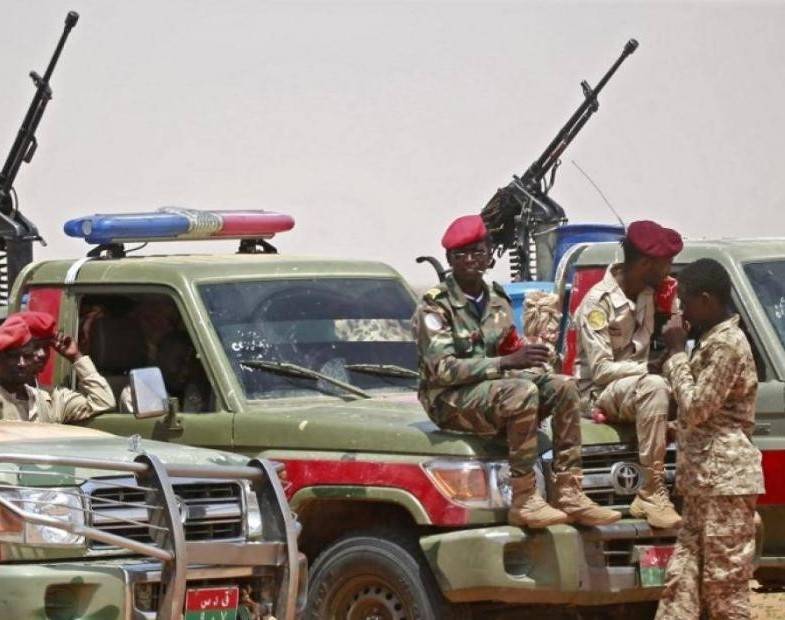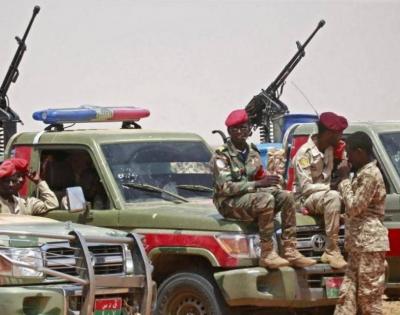The massive destruction inflicted on the power generation station north of Khartoum, occurring less than 24 hours after the bombing of the main oil refinery in the Jili area, has heightened fears regarding the significant consequences of the extensive infrastructure damage resulting from the ongoing war in the country since mid-April 2023. According to unofficial estimates, the losses from the destruction of infrastructure and public facilities since the beginning of the war in Sudan range between 120 to 150 billion dollars so far.
The substantial damage to infrastructure, public and private properties in Khartoum and other areas has increased the economic and financial burdens resulting from the war, at a time when the economic situation in the country is deteriorating horrifically, with the national output declining by nearly half. The national currency has also significantly eroded, with the dollar currently trading above 1800 Sudanese pounds, compared to 600 pounds before the war outbreak.
In the most recent bombing targeting public facilities, the Bahri thermal station, which contributes about 17% of the country’s electricity production estimated at around 1900 megawatts, suffered a massive fire on Saturday morning, with no party claiming responsibility amidst ongoing intense shelling exchanges between the army and Rapid Support Forces in Khartoum. Since the beginning of the war, Sudan has lost more than 70% of its electricity production capacity, which originally only covered about 60% of the country's estimated needs of 3500 megawatts.
Since the outbreak of fighting last year, most neighborhoods in Khartoum and several other cities have experienced complete darkness, as production stations and supply networks have faced significant destruction. Additionally, the overloaded minimal operational systems have led to many areas also going out of service.
Furthermore, alongside the disruption of already faltering services due to the lack of electricity, concerns are rising that the ongoing power outages may exacerbate the significant health issues plaguing the country, with reports indicating an increase in mortality rates in hospitals due to electricity shortages.
In addition to the civilian casualties, estimated by UN data at over 16,000 deaths and tens of thousands of injuries, the war has wreaked tremendous destruction on the country’s infrastructure. Besides the costs associated with the war effort and the destruction of the military arsenal estimated at about 500 million dollars monthly, the war has caused losses in vital physical infrastructures such as bridges, dams, electricity and water transmission networks, fuel and communication networks, healthcare and education facilities, public buildings, as well as the destruction of citizens’ homes and property, and the costs of environmental degradation and pollution.
Intensive aerial and artillery bombardment has partially and completely damaged about 15% of residential buildings, 40% of markets, and 60% of vital buildings and facilities in the capital, including the presidential palace and parts of the army's general command, as well as several museums, historical buildings, ministries, and governmental and private agencies which have burned completely. More than 70% of schools, universities, and higher governmental and private institutes in Khartoum have faced total or partial destruction.
The significant destruction endured by hospitals and healthcare facilities has put the health sector at risk of complete collapse, with more than 80% of hospitals having gone completely out of service. The Health Minister has estimated that around 11 billion dollars would be needed to rehabilitate the sector.
The industrial infrastructure in the country has also faced total destruction and damage, with experts considering the industrial sector as the most affected, citing estimates of about 80% of production units lost after total and partial damage inflicted on more than 600 factories, of which 400 are in Khartoum alone, according to data from the Sudanese Businessmen Union.
Following the war, more than 70% of the 39 operational banks (both governmental and commercial) in the country have ceased operations. According to economic expert Wael Fahmy, repairing the extensive infrastructure and public facilities damage will require more than 120 billion dollars if the war ends now, estimating the total war losses so far at more than 500 billion dollars, without accounting for further destruction that might have resulted from recent attacks.
Fahmy explained to Sky News Arabia that the losses are not limited to the destruction of infrastructure and production facilities alone, but also include massive military spending, which, according to international sources, has approached 200 billion dollars after one year and nearly three additional months of war. He added, "Houses, markets, factories, civilian and military facilities, oil, electricity and water lines, hospitals, and service institutions are facing widespread destruction amidst the current war."




